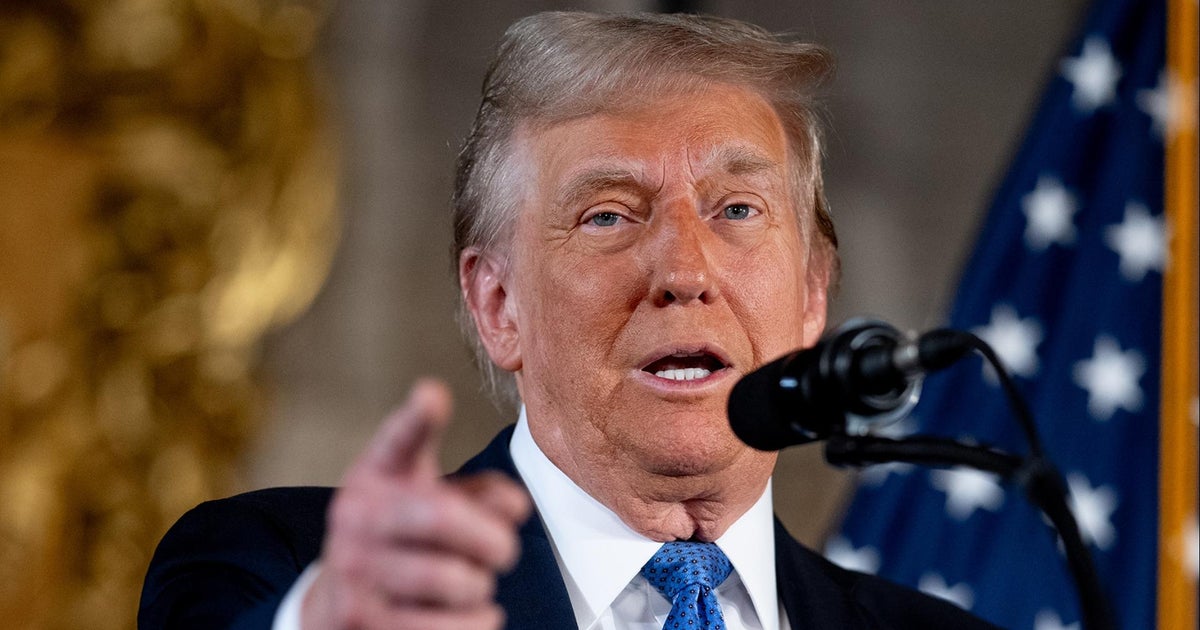CBS News
Wendy’s explores bringing Uber-style pricing to its fast-food restaurants

Patrons of Wendy’s may soon pay varying prices for their burgers, as the fast-food chain intends to bring Uber-like surge pricing to its menu.
“As early as 2025, we plan to test a number of features such as AI-enabled menu changes and suggestive selling based on factors, such as weather, that we think will provide great value and an improved customer and crew experience,” a Wendy’s spokesperson told CBS News in an email.
The strategy involves so-called dynamic pricing — also known as surge pricing — which has the cost of a product or service fluctuating based on factors like rush hour and whether it’s raining.
Wendy’s CEO Kirk Tanner told an earnings call earlier this month that Wendy’s is investing $20 million to roll out digital menu boards to all U.S. company-operated restaurants by the end of 2025.
Wendy’s has rolled out its “Wendy’s Fresh AI” drive-thru in several restaurants, which uses generative AI to improve the speed and accuracy of the drive-thru, the CEO said.
The spokesperson for the Dublin, Ohio-based burger chain said Wendy’s investments in technology would give it “flexibility to change the menu more easily,” helping to drive traffic and “providing value during slower parts of the day.”
By no means widespread, surge pricing was adopted by Britain’s biggest pub company, Slug & Lettuce, in the fall, charging about 25 cents more for a pint on weekends and evenings, the New York Times reported in September.
In theory, charging more for food at high-traffic times could help cover the added costs of having to bring in additional staff during peak hours. That said, restaurant brands also run the risk of putting people off.
That proved to be the case for AMC Entertainment. The globe’s biggest theater chain last summer dropped its plan to charge more for movie seats in prime locations, after testing the practice to negative reviews in three states.
Founded in 1969 and known for its square hamburgers and Frosty dessert, Wendy’s and its franchisees operate 6,030 restaurants in the U.S. and 1,210 eateries in 32 foreign countries.
Thanks for reading CBS NEWS.
Create your free account or log in
for more features.
CBS News
In recent comments, Trump talks history of U.S. tariffs. Here’s a fact check.

President-elect Donald Trump made claims about the history of U.S. tariff collection as he defended his plan to raise tariffs on goods from countries like China and Mexico in a news conference this week, claims historians say are at odds with the facts.
In particular, Trump exaggerated the impact of tariff hikes during his first term, falsely claiming that “no other president took in 10 cents” of revenue from trade collections on Chinese imports. Trump also pointed to 19th-century tariff increases championed by former President William McKinley as evidence that his plan could benefit the economy.
But data shows the federal government had been taking in billions in revenue from tariffs on Chinese imports long before Trump came to office, and historians say the high tariff era of the 1890s was economically rocky for Americans.
Tariffs are taxes on imports, often charged as a percentage of the price that importers pay foreign sellers. They aren’t paid by foreign nations, but by U.S. companies who often pass the cost to American consumers by raising prices.
In his next term, Trump has pledged to put an additional 10% levy on all Chinese goods, along with a 25% tariff on all products from Mexico and Canada. Americans spend more than $1 trillion on goods from those three countries each year, according to data from the Census Bureau.
What Trump gets wrong about history of tariffs on China
In his news conference this week, Trump repeated a claim he made frequently on the campaign trail: that his predecessors essentially took in no money from tariffs on Chinese goods, while his administration took in billions.
Tariffs on Chinese imports have existed since the 1700s, generating billions in revenue for years before Trump came into office.
During President Barack Obama’s final year in office, tariff revenue from Chinese imports totaled over $12 billion, according to data from the U.S. International Trade Commission. That amount increased after Trump’s first round of tariff hikes to over $22 billion, the same federal data shows.
Trump did dramatically raise the total revenue generated from Chinese imports by adding tariffs on hundreds of billions of dollars’ worth of goods. However, even with that increase, tariff collections have not accounted for much more than 2% of federal revenue at any point in the last 70 years, according to the Congressional Research Service this month.
The president-elect has argued his tariff plan for his next term could bring in revenue to help defray the cost of income tax cuts. Goldman Sachs estimated that Trump’s proposed levies on goods from China, Mexico and Canada could generate just under $300 billion in tariff revenue per year, which would be up from $77 billion in fiscal year 2024.
But tariffs had not been viewed as a primary way to raise revenue since the federal income tax was introduced in 1913, said Judith Goldstein, a political science professor at Stanford.
“As the U.S. became more involved in the world, the effect of tariffs on domestic production and prices were increasingly a problem,” Goldstein said.
Trump has also repeatedly argued his tariff plan will help protect U.S. companies. There’s some evidence that the customs duties he imposed in his first term boosted jobs in specific industries like washing machine manufacturing, according to research from the Brookings Institution, a think tank. However, manufacturers also faced higher costs for raw materials and retaliatory tariffs from other nations, according to the Federal Reserve.
What Trump gets wrong about the McKinley tariffs
This week, Trump also cited McKinley’s 1890 tariff hikes as evidence that these customs taxes can enrich the U.S.
“You go back and look at the 1890s, 1880s, McKinley, and you take a look at tariffs, that was when we were proportionately the richest,” Trump said.
In 1890, tariff hikes raised the average duties on foreign imports from 38% to nearly 50%. McKinley, a representative for Ohio at the time, pushed for the taxes to protect his state’s steelworkers from foreign competition, according to Dartmouth College economics professor Doug Irwin.
However, the decade that followed these hikes was marked by economic trouble.
“The U.S. went into a depression in 1893, and we didn’t really emerge out of it until the mid-1890s. So in general the 1890s was not a great decade for the U.S. economy,” Irwin said.
Additionally, McKinley’s tariff bill raised prices of goods like shoes and clothes, leading to voter backlash that cost Republicans 93 seats in the next election, according to the House of Representatives Office of the Historian.
Trump’s transition team did not respond to a request for clarification on why he said America was “proportionately the richest” after this bill passed.
Historic data shows gross domestic product per capita for Americans has vastly increased from about $6,400 in the early 1890s (in 2017 dollars) to roughly $69,000 today (in 2024 dollars).
“It is unclear why he’s picking on the 1890s as this golden age. It wasn’t considered good times, at least by the people living through it at the time,” Irwin said.
CBS News
How can Congress avoid a government shutdown?

Watch CBS News
Be the first to know
Get browser notifications for breaking news, live events, and exclusive reporting.
CBS News
Mayorkas warns of serious consequences if government shutdown happens

Watch CBS News
Be the first to know
Get browser notifications for breaking news, live events, and exclusive reporting.

